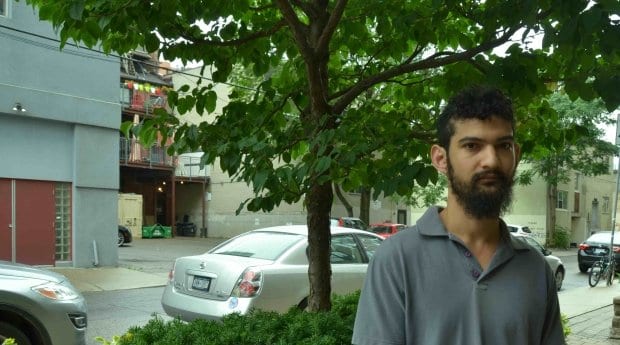A local artist is calling on Trinidadian ragga soca star Bunji Garlin to apologize for homophobic lyrics in one of his songs, in advance of Garlin’s performances at the Scotiabank Caribbean Carnival Toronto festival, and several other events in Toronto, over the Civic Holiday weekend.
Adam Williams, a ceramic artist who moved to Toronto from Trinidad in 2011, remembers how popular Garlin’s song “Blaze de Fire” was when it was released in 2005. “It was a very good song — we all danced to it in clubs,” Williams says.
But his enthusiasm for the song wavered after his attention was drawn to the lyrics.
In “Blaze de Fire,” Garlin — whose real name is Ian Anthony Alvarez — sings that he’s the fire man and asks listeners to get the fires out of control. He then lists a variety of people to “bun,” including drug users, thieves and liars, and finishes with the line “Bun some of dem big funny man who taking dem man over gyal.”
“I think that’s a very dangerous and slippery slope,” Williams says. Though he acknowledges that the song likely isn’t meant to be taken literally, he questions its message equating gay men with criminals.
In Trinidad and Tobago, homosexuality is still criminalized, though the laws are not widely enforced. And while the Caribbean nation has not experienced the same violence toward the LGBT community that has been seen in neighbouring Jamaica, some people remain closeted out of fear of homophobia.
Even though the song is nine years old, Williams thinks recent momentum around LGBT issues globally should prompt leaders from all walks of life to take responsibility for their actions.
“We want an apology from him because I think homophobia is on everyone’s hands,” he says.
Williams has taken his concerns to the festival organizers and Toronto City Council. His complaint was sent to Denise Herrera-Jackson, the CEO of Scotiabank Caribbean Carnival Toronto, popularly known as Caribana, and to Councillor Joe Mihevc, the city council liaison to Scotiabank Caribbean Carnival Toronto. The festival receives city grants, and as such, organizers must sign and adhere to a statement of non-discrimination.
Herrera-Jackson tells Xtra via email that Garlin provided a signed statement to Mihevc when the City of Toronto told about him about the complaint.
Mihevc confirms that he received Garlin’s letter and that it is being reviewed by the City of Toronto’s Equity, Diversity and Human Rights division, which will determine whether it meets the city’s non-discrimination standards.
“Broadly speaking, the city and certainly myself have zero tolerance for homophobia for any organization, particularly if they receive city funds,” Mihevc says, adding that if allegations of homophobia are found to be true against any organization, it will be challenged by the city very quickly. He says that festival organizers have expressed that they want the festival to be inclusive of everyone.
Mihevc cannot provide Xtra with a copy of Garlin’s letter until after it is reviewed by the equity office but says the letter speaks in generalities about how Garlin respects all people and that no offence was intended to anyone.
Fay-Ann Lyons, Garlin’s wife and the owner of his management company, tells Xtra by phone that they won’t comment until they feel they have all the necessary facts at hand.
Williams is emphatic that he does not want to block Garlin from playing at the Scotiabank Caribbean Carnival Toronto — he just wants an apology. “The past year or two, there’s been so much momentum in breaking the silence and the indifference to the topic,” he says. “[An apology] would add to the momentum of the discussion.”


 Why you can trust Xtra
Why you can trust Xtra


